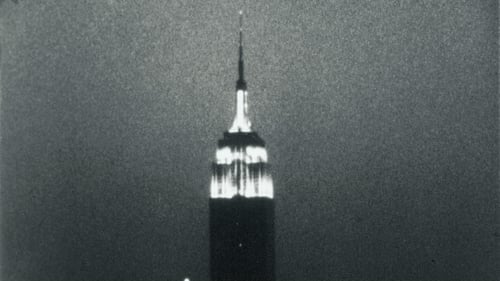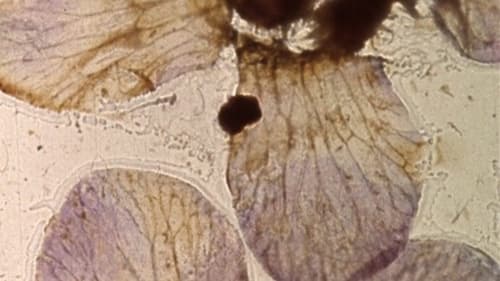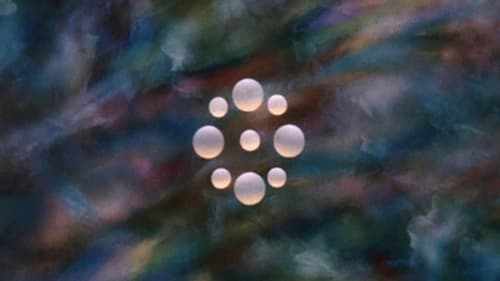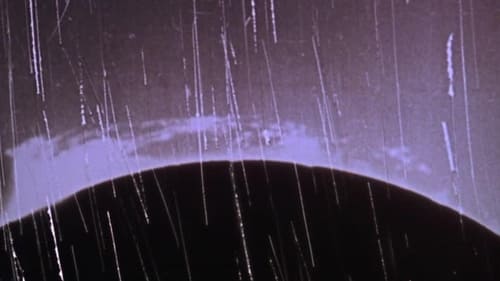Otro Sol (2023)
ジャンル : ドキュメンタリー
上映時間 : 1時間 26分
演出 : Francisco Rodríguez Teare
脚本 : Francisco Rodríguez Teare
シノプシス
Otro Sol is a group of real and invented characters trapped in a film. It is also a purgatory of retired thieves that takes place on the coast of the Atacama Desert. The film is circular and seeks to invent and verify the myth of Alberto Cándia, a Chilean international thief who stole the Cathedral of Cadiz in Andalucia in the late 1980s.

Experimental film consisting of a single static shot of the Empire State Building from early evening until nearly 3 am the next day.

Seemingly at random, the wings and other bits of moths and insects move rapidly across the screen. Most are brown or sepia; up close, we can see patterns within wings, similar to the veins in a leaf. Sometimes the images look like paper cutouts, like Matisse. Green objects occasionally appear. Most wings are translucent. The technique makes them appear to be stuck directly to the film.

In a lifeless urban landscape where time itself has stopped its crawl, a mad ballet is commencing and a newly hatched butterfly is about to die.

Animator Ryan Larkin does a visual improvisation to music performed by a popular group presented as sidewalk entertainers. His take-off point is the music, but his own beat is more boisterous than that of the musicians. The illustrations range from convoluted abstractions to caricatures of familiar rituals. Without words.

This animated short is a play on motion set against a background of multi-hued sky. Spheres of translucent pearl float weightlessly in the unlimited panorama of the sky, grouping, regrouping or colliding like the stylized burst of some atomic chain reaction. The dance is set to the musical cadences of Bach, played by pianist Glenn Gould.

Cut up animation and collage technique by Harry Smith synchronized to the jazz of Thelonious Monk's Mysterioso.

Experimental filmmaker Rubén Gámez explores the iconography of the maguey plant in Mexican cinematic history.

First film by Julio Bressane shot in exile, "Memoirs" is a film about a man who repeatedly kills the same type of woman in same places, the same way. Filmed on the streets of London.

For this film, Takashi Makino allowed himself to be inspired by the earth. In a never-ending stream of images, we recognize elements from the forest that he then reduces to an abstraction. The film came about as a classical composition in which the picture and the musical contribution of Jim O’Rourke link up seamlessly and lead the mood in turn. A sense of freedom is what predominates.

In Phantom, each face, each body appears, like cinema itself, from beneath a curtain that flutters and flickers to reveal haunted silhouettes that never quite take shape.

Via the New York Times: "...a severely obscure meditation on pre-revolutionary Russia in the form of an encounter between a ghost from the past and the ghost's present-day guardian. In fact, the two characters seem to be the shade of Anton Chekhov and the young man who tends a Chekhov museum in the Crimea, though that is never made explicit."

Early Abstractions is a collection of seven short animated films created by Harry Everett Smith between 1939 and 1956. Each film is between two and six minutes long, and is named according to the chronological order in which it was made. The collection includes Numbers 1–5, 7, and 10, while the missing Numbers 6, 8, and 9 are presumed to have been lost.

A live action footage of a smiling, bespectacled (presumably) Western tourist set against the familiar cadence of an accelerating train revving up as it leaves the station sets the mesmerizing tone for the film's abstract panoramic survey of an Ozu-esque Japanese landscape of electrical power lines, passing trains, railroad tracks, and the gentle slope of obliquely peaked, uniform rooflines as Breer distills the essential geometry of Mount Fuji into a collage of acute angles and converging (and bifurcating) lines .

This animated short film attempts to answer the eternal questions, What is dying? and How does it feel? Based on recent studies, case histories and some of the ancient myths, the afterlife state is portrayed as an awesome but methodical working-out of all the individual's past experiences. Film without words.

An animation film, made without the use of a camera, in which "boogie" played by Albert Ammons and "doodle" drawn by Norman McLaren combine to make a rhythmic, brightly colored film experiment. The main title is in eight languages.

100 basic images switching positions for 4000 frames.

Kinoautomat was the world's first interactive movie, conceived by Radúz Činčera for the Czechoslovak Pavilion at Expo '67 in Montreal. At nine points during the film the action stops, and a moderator appears on stage to ask the audience to choose between two scenes; following an audience vote, the chosen scene is played.

An experimental short film by Walerian Borowczyk and Jan Lenica.

A creation myth realized in light, patterns, images superimposed, rapid cutting, and silence. A black screen, then streaks of light, then an explosion of color and squiggles and happenstance. Next, images of small circles emerge then of the Sun. Images of our Earth appear, woods, a part of a body, a nude woman perhaps giving birth. Imagery evokes movement across time. Part of the Dog Star Man series of experimental films.

Takashi Makino’s source of inspiration, our place in the world and the universe, never seems to dry up in view of the never-ending flow of immersive films. Generator may well be the earthiest of his films so far, made as a reaction to the Fukushima disaster. A reality check, but in the world that Makino shows, this can never be achieved without looking inwards too.











